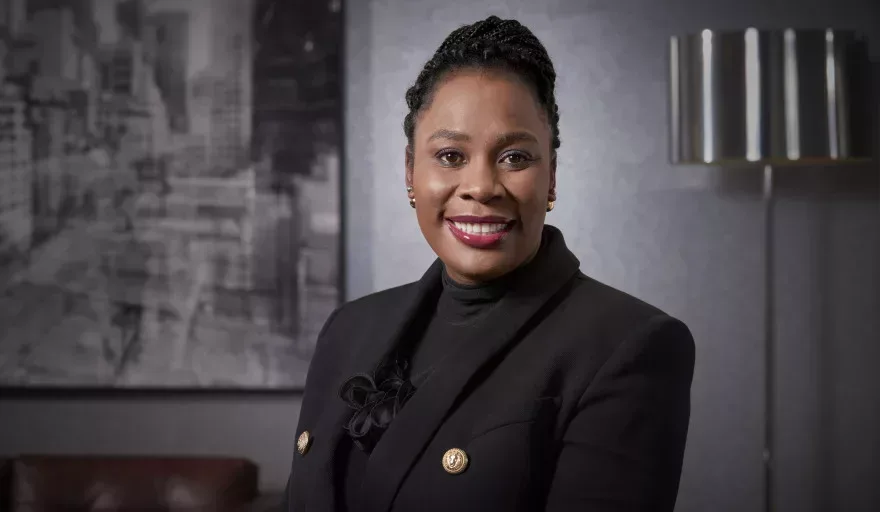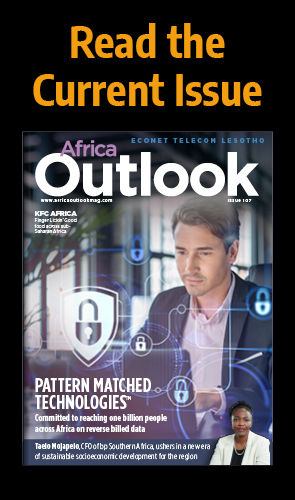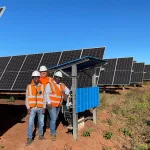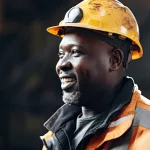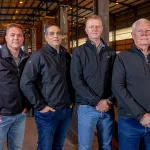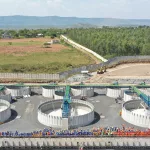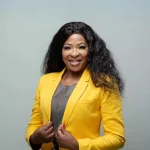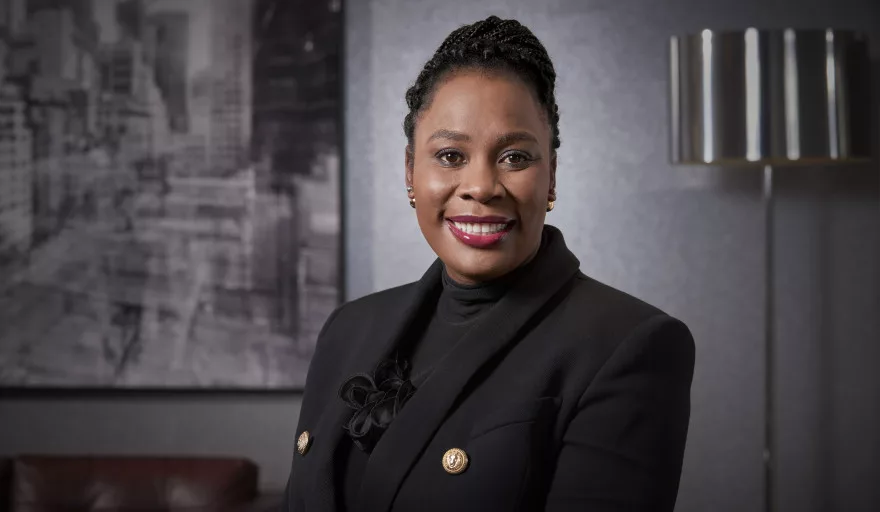
Written by: Tom Wadlow
“Growing up in Africa in the 80s and 90s, it was clear to see how important it was and still is to provide people access to energy. It has a massive impact on welfare, health and economic prospects.
“Growing up in Africa in the 80s and 90s, it was clear to see how important it was and still is to provide people access to energy. It has a massive impact on welfare, health and economic prospects.
“I think this ambition, whether I knew it or not at the time, was always hardwired into my psyche, especially given the work my dad was doing. And technology has come a long way since then, so there was no doubt in my mind that studying mechanical engineering and following in my father’s footsteps would make for a very rewarding career.”
As a 16-year-old, Eghosa Oriaikhi Mabhena was in a considerable minority of young women in the UK. Moving to London from her home country in Nigeria, she was one of very few females determined to pursue a career in the engineering field.
And although today’s numbers are improving, the available figures are still stark. According to the Women’s Engineering Society, in 2018 just 25.4 percent of girls aged 16 to 18 in the UK would consider a career in engineering, compared to 51.9 percent of boys. In terms of employment, just 12.37 percent of all UK engineers are women.
Oriaikhi Mabhena, who has been in the industry for around two decades, is now the CEO of Puma Energy’s Africa business, very much following in the footsteps of her father, who worked with Shell for almost 40 years.
“I have always had the urge to work internationally in order to acquire enough experience to truly make a difference in Africa one day,” she says. “My goal therefore was always to work for international companies that are constantly pushing the frontiers of technology, which is why took the opportunity to work in the R&D department for Schlumberger in the UK in 2004.
“This drive continues to motivate me today on a daily basis – if my work is helping people to gain access to economic opportunities, education, healthcare and security in life, then it is a job well done.”
Oriaikhi Mabhena spent nine years at Schlumberger before working in several director positions at Baker Hughes until July 2019, when she joined Puma Energy as a member of the Executive Committee at the group level, moving back to Africa to head up the company’s regional division. Now living in Johannesburg, the opportunity to lead from the ground was too good to turn down.
“So, why Puma?” the CEO asks. “The short answer is I wanted to be closer to the end customer, the people who we are impacting. I can feel the communities we are energising, whereas in London that was far more difficult to do, so this was the ideal opportunity to apply the experience and business acumen I have acquired.”
Since arriving, Oriaikhi Mabhena’s mission has been to build a One Puma One Africa team, a unit of Puma Energy which manages all business across the African continent.
This covers operations in 17 countries, her work ranging from corporate strategy, business development, government relations through to developing strategic relationships with other critical stakeholders, including industry bodies, and oil and gas operators, all the while placing the customer at the heart of Puma’s activities.
“I am very passionate about two things,” Oriaikhi Mabhena continues. “The first is about becoming a preferred place to work and be, and the second is executing our strategy and becoming a preferred supplier to our customers.
“Yes, of course we want to continue building value for our investors and shareholders, but we are also becoming an increasingly customer-centric business. The way to win is for customers to fall in love with the brand and identify with Puma. That’s how we deliver value and success.”
Such has been Oriaikhi Mabhena’s impact, she was recently named by Reset Global People in its Top 100 Women CEOs in Africa, ahead of the African Women CEOs Summit scheduled for July 2020 in Lagos.
Describing the award as extremely humbling, her initial reaction to finding out the news, perhaps surprisingly, was one of bewilderment.
“The day I found out was one of the toughest I have had since moving out to South Africa,” Oriaikhi Mabhena recalls. “I remember getting home at about eight o’clock and thinking wow this is tough, and my sister called telling me to get off the sofa and look at the link she had sent me.
“I opened it and was confused – I didn’t know how I had been ranked and I hadn’t been contacted, but once I had a chance to take it in, I realised that from time to time you need a reminder that you are doing the right thing.
“It was validation that I was making a difference, and that the hard work is worth it. It is a tough time for the industry, which is in a period of transition to renewable and sustainable ways of thinking, so to be recognised like this shows we are on the right track. It has motivated me to keep pushing.”
Oriaikhi Mabhena is also a prominent voice in the dialogue surrounding female participation in the energy industry.
Recent figures from catalyst.org show a promising trend but are striking nonetheless, the representation of women on the boards of power and utilities firms growing to 17 percent in 2019, up from just two percent five years earlier.
So, how has Oriaikhi Mabhena blazed a trail to the top of an industry whose leadership is still so male dominated?
“This is very close to my heart,” she says. “I subscribe to the UN’s HeForShe campaign as we need men to open the doors and mentor us women to gain a seat at the table, until there are enough of us in the industry to support more women to advance to senior leadership and c-suite positions. I am grateful to be standing on the shoulders of the women who have paved the way before me. I also recognise the people who have believed in me and invested in me personally and professionally along the way and till this day.
“However, regardless of gender, you need to be a talented individual who can deliver on goals and drive value, and we must prove that. I think once that value has been seen then there is a need for our industry to ask why that is case – perhaps there are things women do differently to do with culture and leadership that could be attributed to gender.
“But that conversation only happens because result and value have been proven. If anything, it is a results and value-based conversation rather than a gender-based conversation. Once you have the seat at the table, you can then show the value of having a woman in the room.”
Oriaikhi Mabhena also highlights how she has taken inspiration from other role models throughout her education and career to date, the CEO determined to continue imparting her own advice onto other women in the future. She likens this to the four-minute mile attitude, whereby others are inspired to go one better than her, remembering how she was inspired by another girl studying engineering in her school days.
“I want more women to stay in the industry and feel there is a long-term future for them,” she says, bringing the conversation to a close.
“My advice would be to have fun. Love what you are doing. At the end of the day, delivering value is much easier when you are enjoying yourself. Value is also about people as well as results, so my advice is to create value and have fun while doing it.”

